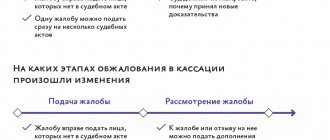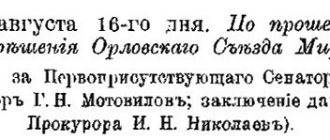During the judicial investigation, violations are often observed, expressed in deliberate non-compliance with the norms of professional regulations on the part of an employee of the Investigative Committee, the central figure of which is the investigator. Taking into account the role of this employee, as well as the consequences of the decisions he makes, if illegal elements are detected in his activities, this should be immediately reported by filing a complaint in the prescribed form.
In this article we will tell you how to file a complaint against the actions of an investigator, where it should be sent and what consequences to expect if it is filed.
Multi-channel free hotline Legal advice on criminal law. Every day from 9.00 to 21.00
Moscow and region: +7 (495) 662-44-36
St. Petersburg: +7 (812) 449-43-40
Who is an investigator?
Investigator - an official of a police agency, investigative committee or FSB. Its task is to investigate crimes, that is, to form an evidence base for prosecution in court.
Despite differences in departmental affiliation, the procedural status of investigators is the same.
According to the law, an investigator is a participant in the process who belongs to the prosecution. Despite this, it obliges him to be objective and collect evidence in favor of the accused. This contradiction leads to the fact that citizens remain defenseless against abuses by officials. The lawyer is quite limited in his capabilities.
The only thing left is to write a complaint about the investigator’s inaction or his actions that violate the law.
Institutions of appeal
Having made sure that the actions of the investigator really contradict the norms of domestic legislation, you can proceed to drawing up a complaint. But before we tell you how to do this, you should first find out where to file a complaint.
Below are the main authorities in which you can appeal against the unlawful actions of an Investigative Committee employee by filing a complaint.
Head of the investigative institution
In order to speed up the processing of the complaint as much as possible, it should be submitted to the immediate superior of the investigator who violated the law. In this case, the response time to the filed complaint will be no more than 3 days from the moment it is received by the investigative authorities.
In some cases, the consideration period may be somewhat delayed, but in this case the reasons for the delay will be explained.
In most cases, the leadership of the Investigative Committee provides a response to received requests from citizens as soon as possible, since they are interested in ensuring that the “news” about the incompetence of its subordinates does not spread to higher authorities.
Central office of the investigative body
If the situation cannot be resolved at the stage of contacting management, the next step will be filing a complaint with the central office of the Investigative Authority. This method of appealing against unlawful actions of an investigator is one of the most convenient, since it can be carried out directly online.
Today, you can file a complaint with this authority in one of the following ways:
- By sending a registered letter by Russian Post. Address: Moscow per. Technical 2;
- Using the hotline: 8-800-10-01-260;
- By leaving an online complaint at the Internet reception desk on the official portal of the Insurance Company (sledcom.ru).
Before filing a complaint, you should check several times whether the actions taken by the investigator actually fall under the category of “illegal.”
Prosecutor's office
Non-illegal actions or fact of inaction on the part of the investigator can be complained to one of the central government bodies exercising a supervisory function - the prosecutor's office. Currently, you can file a complaint with this authority in the following ways:
- Personal visit to the selected unit of the supervisory authority. It may be a branch of the District, City, Regional or General Prosecutor's Office. It is considered the fastest option for filing a claim against an Investigative Committee employee. It should be borne in mind that when compiling this method, you will need an identification document (passport);
- By means of a power of attorney (through a proxy). When using this appeal method, you should keep in mind that the document that will guide the authorized person when contacting a law enforcement agency must be certified by a notary;
- By post (registered mail with notification of acceptance). It is considered the “slowest” method of filing a complaint, which should be resorted to only if filing one of the above is impossible.
Court
Unlawful actions of the investigator can also be challenged in court. It is allowed to file a complaint against an investigator in court only at the place where criminal proceedings are being considered. Once the complaint is registered, it will be reviewed within the next five days.
Upon review by employees of the state court, one of the following decisions will be made:
- Satisfaction of the complaint with the subsequent recognition of specific actions of the investigator as illegal and his bringing to disciplinary or criminal liability;
- Refusal to satisfy the complaint due to the lack of proper grounds for this.
General list of investigator powers
Article 38 of the Code of Criminal Procedure describes the following basic rights and responsibilities of the investigator:
- to initiate criminal proceedings;
- accept it for your proceedings or transfer it to the head of the investigative department;
- select versions of the crime for further development;
- make a decision to conduct investigative actions and send requests for their conduct to the prosecutor’s office or court, if required by law (for example, a search of a residential premises);
- issue instructions to operational units, local inspectors, and investigative bodies to carry out operational activities or investigative actions;
- appeal the decisions of the prosecutor with the permission of the head of the investigation;
- express your disagreement with the prosecutor's comments.
The investigator’s right to appeal the prosecutor’s decisions is limited and applies only to:
- cancellation of the decision to initiate proceedings;
- return of materials to the investigator for additional investigation;
- change in qualifications (which articles of the Criminal Code should be applied);
- change in the scope of the charge (number of episodes of crime);
- drawing up a new indictment or eliminating other deficiencies.
The complaint is submitted to a higher prosecutor, up to the General Prosecutor's Office.
The implementation of these and other rights and obligations of the investigator is carefully described in the section of the Code of Criminal Procedure devoted to the preliminary investigation.
Complaint against the investigator sample 1
In the Central District Court of Tyumen, lawyer of the Tyumen Interregional Bar Association A.S. Sidorov. Tyumen, st. 30 years of Victory, 14 defense of the accused Petrov Petr Petrovich
COMPLAINT (in accordance with Article 125 of the Code of Criminal Procedure of the Russian Federation)
The criminal case was initiated on January 24, 2013.
The period of preliminary investigation in a criminal case has been extended to 5 months, i.e. until June 24, 2013.
On April 23, 2013, the period of detention of Petrov P.P. also extended until June 24, 2013.
One of the grounds for extending the period of detention of Petrov P.P. there was a need to complete the psychological and psychiatric forensic examination and familiarize the parties with the conclusions of biological, fingerprint and medical-forensic examinations.
At the same time, in fact, at the time of going to court, Art. investigator Ivanova I.I. with a petition to extend the period of detention of Petrov P.P. all these examinations were carried out. There were no obstacles to familiarize the parties with the expert opinions. Thus, I believe that Art. investigator Ivanova I.I. misled the court
On May 7, 2013, I turned to Art. investigator Ivanova I.I.
with the petition to acquaint me and Petrov P.P. with the conclusions of forensic examinations carried out in the case, motivating it by the fact that failure to familiarize the defense with them in a timely manner violates the rights of the accused to defense and reasonable time limits for the preliminary investigation, since it makes it impossible to timely submit a petition for the appointment of additional or repeated examinations, if grounds for this arise.
On May 7, 2013, in satisfying the petition of Art. investigator Ivanova I.I.
was rendered. The decision to refuse the petition is motivated by the fact that, in accordance with paragraph.
3 hours 2 tbsp.
38 of the Code of Criminal Procedure of the Russian Federation, the investigator independently directs the progress of the investigation of a criminal case and makes decisions on investigative and procedural actions. In this regard, these interested parties will be familiarized with the conclusion of forensic examinations in accordance with the approved plan for the investigation of the criminal case.
I do not agree with the said decision to refuse the request to familiarize myself with the conclusions of forensic examinations for the following reasons.
In accordance with paragraph 11, part 4, article 47 of the Code of Criminal Procedure of the Russian Federation, the accused has the right to familiarize himself with the expert’s opinion.
According to clause 6, part 1, art. 53 the defense attorney has the right to familiarize himself with all the documents that should have been presented to the accused.
Part 1 of Article 206 of the Code of Criminal Procedure of the Russian Federation obliges the investigator to present an expert opinion to the accused and his defense attorney.
The law does not establish time limits for these persons to familiarize themselves with the expert’s opinion. The solution to this issue in specific criminal cases is largely determined by the tactical considerations of the person conducting the preliminary investigation or inquiry.
However, the exercise of this right by the investigator to independently determine the time of familiarization of the parties in the case with the conclusions of forensic examinations should not violate the right of the accused to defense. In any case, it must be correlated with the right of the accused to a reasonable time in criminal proceedings, arising from the provisions of Art.
6.1 of the Criminal Procedure Code of the Russian Federation. Moreover, according to Part 4 of this article, circumstances related to the organization of the work of investigative bodies cannot be taken into account as grounds for exceeding reasonable time limits for criminal proceedings.
In this case, the defense’s untimely familiarization with the expert’s conclusions as a result of the refusal of Art. investigator Patrusheva K.N. Refusal to satisfy the above request of the defense may lead to the following negative consequences for the accused:
- Familiarization with the expert opinions will be carried out within such a period of time before the announcement to the accused and his defense attorney about the completion of the preliminary investigation in the case, which will not actually allow these persons to exercise their rights related to the satisfaction of their well-founded requests for an additional or repeated judicial examination.
- If, nevertheless, such petitions are satisfied, the investigator will be forced to again extend the period of the preliminary investigation, motivating his decision by the specified circumstance, which will also entail a violation of the rights of the accused to a reasonable time for criminal proceedings.
Considering the above and guided by Art. 125 Code of Criminal Procedure of the Russian Federation,
ASK
Expert opinion
Egorov Andrey Andreevich
Legal consultant with 10 years of experience. Specializes in family law. More than 3 years of experience in developing legal documentation.
resolution Art. Investigator of the Investigative Department for the Central Autonomous District of the city.
Tyumen Investigative Directorate of the Investigative Committee of the Russian Federation for the Tyumen Region Ivanova I.I. about the refusal to satisfy the petition of defense attorney P.P. Petrov.
– lawyer Sidorov A.S. on familiarization with the conclusions of forensic examinations carried out in a criminal case, recognize it as illegal and unfounded and oblige her to eliminate the violation.
Application:
- warrant No. 2222 dated May 20, 2013, issued to lawyer A.S. Sidorov. to appeal the investigator's decision in accordance with Art. 125 of the Code of Criminal Procedure of the Russian Federation and the defense of P.P. Petrov when considering the complaint in court.
- copy of the petition of lawyer Sidorov A.S. on familiarization with the conclusions of forensic examinations
- copy of the resolution Art. Investigator of the Investigation Department for the Central Autonomous District of Tyumen, Investigative Directorate of the Investigative Committee of the Russian Federation for the Tyumen Region, Ivanova I.I. about refusal to satisfy the application.
What is meant by inaction?
Illegal inaction of an investigator means refusal or evasion of work that he is obliged to do by virtue of the law. Illegal actions also mean going beyond the scope of authority or carrying them out in violation of procedural law.
Violations are considered significant and entail sanctions from the prosecutor or head of the investigative department if they lead to infringement of the rights of citizens or affect the effectiveness of the investigation. However, the last points are closely related.
Examples of inaction:
- refusal to initiate a case;
- refusal to apply measures aimed at securing a civil claim and preserving property that was obtained by criminal means.
- refusal to call a witness or demand evidence that confirms the words of the accused;
- refusal to order an examination;
- unjustified avoidance of investigative action, adoption of a different procedural decision.
The law gives reason to believe that inaction takes absolutely any form, and the author of the complaint is not limited in how to formulate his demands.
The legislative framework
When drawing up a statement and indicating in it legal references confirming the accusations against the investigator, you should be guided by the following legislative norms:
- Federal Law “On the procedure for considering appeals from citizens of the Russian Federation” dated May 2, 2006 No. 59;
- Article 125 Criminal Procedure Code of the Russian Federation;
- Order of the Investigative Committee under the Prosecutor's Office of the Russian Federation dated September 19, 2007 No. 17 (as amended on April 8, 2008). “On the introduction into force of the Instruction on the procedure for considering applications and receiving citizens in the system of the Investigative Committee under the Prosecutor’s Office of the Russian Federation.”
Indication of these legislative norms in the statement of claim against the investigator will significantly reduce the likelihood of refusal to satisfy her requirements and return the document itself to the applicant.
Meaning of the complaint
A complaint about the investigator's inaction is of serious importance. It lies in the ability to influence the investigation process, as well as to record violations committed by the investigator if there is still no proper response to the complaint. Thus, she will play a role in the future when the case comes to court.
Despite the abolition of the right to send the case for further investigation, before considering the materials on the merits, the judge has the right to make comments. They are transferred to the prosecutor's office, and from there to the investigator. This procedure is possible as part of a preliminary meeting. At this stage, the question of whether the case is ready for consideration is decided.
Violations ignored in the first instance may play a role at the stage of appeal, cassation or supervision.
Prosecutor's office
The prosecutor is obliged to ensure supervision over the legality of the investigator’s actions. Employees who are overloaded with work actually only care about one thing – meeting deadlines. It is almost never taken into account how correct the decision is on the merits - there is no time to do this.
An example is the refusal to initiate a case. The prosecutor's office, as a rule, agrees with the investigation. At the same time, if a complaint is filed about the inaction of an investigator in a criminal case, the prosecutor may agree with it.
Which prosecutor's office should I contact? If the case is under the jurisdiction of the district police department or the Investigative Committee, supervision is carried out by the district prosecutor's office.
The FSB is in charge of cases, which are then transferred to a military court, so the military prosecutor's office is in charge of supervision. The same is the case with the military administration of the UK.
In general, oversight of the activities of the FSB is provided by military prosecutors, because state security officers are military personnel.
A complaint to the prosecutor's office about the investigator's inaction is considered a good option, since after going through all the authorities of the prosecutor's office, the applicant still has the right to go to court.
Grounds for appeal
A complaint against an investigator is subject to consideration if there are compelling reasons, which may include any offenses committed by an employee of the Investigative Body. The illegal actions of the investigator, which can be legally appealed by filing an appropriate application (complaint), include the following:
- Unreasonable refusal to open criminal proceedings;
- Deliberate inhibition of the investigative process;
- Unjustified closure of criminal proceedings;
- Subjective (rather than objective) assessment of the information provided, distortion of available evidence, “judgment” of one side of the case;
- Extortion of a bribe, threats, psychological pressure and other actions of an illegal nature taken in relation to one of the parties to the paperwork.
As practice shows, quite often, completely legal and justified actions of an investigator are interpreted by citizens as infringing and violating their rights and interests. For example: delay in the process of initiating a criminal case can play into the hands of criminals, allowing them to hide evidence or even leave the country. However, in some cases, in order to begin proceedings, it is necessary to obtain appropriate confirmation and evidence - otherwise the arrest will be considered illegal and the initiation of criminal proceedings will be groundless.
Finding such grounds often requires a lot of time and resources, therefore, before filing a complaint against an investigator, you should make sure that his activities really contradict the norms of the current legislation of the Russian Federation.
Courts
Complaints are considered in the first instance by district courts. The application is reviewed by one of his employees. He calls the initiator of the complaint and his representative, most often they are lawyers. Prosecutors represent the state side.
Those who disagree with the judge's decision have the right to file an appeal, cassation and supervisory complaint.
How to file a complaint?
It is submitted either directly to the body authorized to consider it, or to the investigator, who then transfers it to the appropriate structure.
Practice shows that it is better to send materials directly to the head of the investigation, to the court or the prosecutor's office. Otherwise, their transfer will also be delayed. Papers must be given directly to the office or sent by mail.
Persons in custody submit documents through the administration. Examples of complaints submitted from pre-trial detention centers and places of detention show that not all government agencies violate the rights of citizens.
Submitting a complaint through electronic services makes sense if it is duplicated in paper form.
Where to go
Ideally, it is better to send a complaint to the prosecutor’s office to which the investigative department is subordinated territorially or departmentally. However, if you are not familiar with the subordination system, then you can safely write a complaint to any prosecutor’s office, including the General Prosecutor’s Office.
Expert opinion
Morozov Ivan Severinovich
Legal consultant with 6 years of experience. Specialization: criminal law. Has experience in defense in court.
The fact is that the prosecutor's office is a single body built on an internal hierarchy. Therefore, wherever your complaint ends up, it will be forwarded to its destination.
If you send a complaint to the prosecutor's office higher up the hierarchical ladder, there is a chance that it will be put under control.
This means that the complaint will be sent to its destination, but the higher prosecutor’s office will open a supervisory case and require the lower prosecutor’s office not only to deal with the arguments of the complaint, but also to notify the higher authority about it.
The complaint can be submitted to the prosecutor's office in person or sent by registered mail. Let us add that the prosecutor’s office is one of the few bodies in which incoming correspondence is almost never lost. This means that when you file a complaint, you can be sure that it will be recorded and processed.











